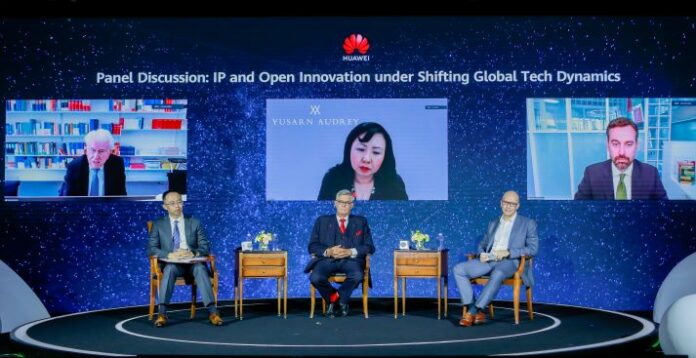Huawei’s total number of 5G Standard Essential Patents (SEPs) has made the company maintain the patenting pole position globally, according to Clarivate, a leading global IP consultancy, and analytics firm.
Clarivate’s latest report titled, “Demystifying the 5G Standard Essential Patent landscape: Phase 3” shows that Huawei still ranked No. 1 with 6,566 additional patents. The firm has 107,000 employees in Research and Development and had invested about Kshs. 2.5 trillion (USD 22.4 billion) R&D by end of 2021.
“We are eager to license our patents and technologies to share these innovations with the world,”
said Huawei’s Chief Legal Officer, Song Liuping.
This dominance in 5G intellectual property could be attributed to Huawei’s active management of its intellectual property portfolio. By the end of 2021, Huawei held more than 110,000 active patents across over 45,000 patent families.
As Technologies and Innovation capacity are some of Huawei’s core competencies, Yang Chen, Vice President of Huawei Southern Africa, noted that the firm was keen to expand the innovation capabilities in Africa as well.
“We have set up 6 innovation and hardware training centers in Sub Saharan Africa for joint innovation and skill transfer through several initiatives such as our new LEAP Talent Development Program that aims to cultivate 100,000 ICT professionals in 3 years. This is part of our goal to increase African youths’ innovation capacity,”
he noted.
Reacting to the report’s revelations, Liu Hua, a World Intellectual Property Organization official, acknowledged Huawei’s continued investment in innovation, saying:
“We look forward to seeing Huawei continue to take part in high-level global competition and cooperation with innovation at its core.”
SEPs are common in the telecommunications industry. No company can avoid 5G SEPs if it wants to design products that comply with 5G standards. For five straight years, Huawei has ranked No. 1 worldwide in terms of Patent Cooperation Treaty applications, showing its rich innovation pipeline.
How Safaricom’s high speed 5G network will impact Kenya’s internet
The report notes that African countries are already benefiting from Huawei’s 5G patents, as several operators have already begun rolling out 5G with Huawei equipment to provide high-speed home and office broadband, as well as industry-specific solutions in mining, tourism, and other specific industries.
Huawei is also ranked highly globally as the second highest investor in R&D by the 2021 EU’s Industrial R&D Investment Scoreboard.
Over the last 20 years in Africa, Huawei’s advanced patented technologies have helped connect an estimated 1 billion people and brought innovative rural network solutions to more than 10 million people who were previously not connected.
These networks are providing them with access to information-based services such as health and education. To combat climate change and its impacts, Huawei has leveraged digital technologies to provide a green, smart, and secure digital energy solution tailored for Africa, helping to reduce carbon emissions and relieve power shortages.









